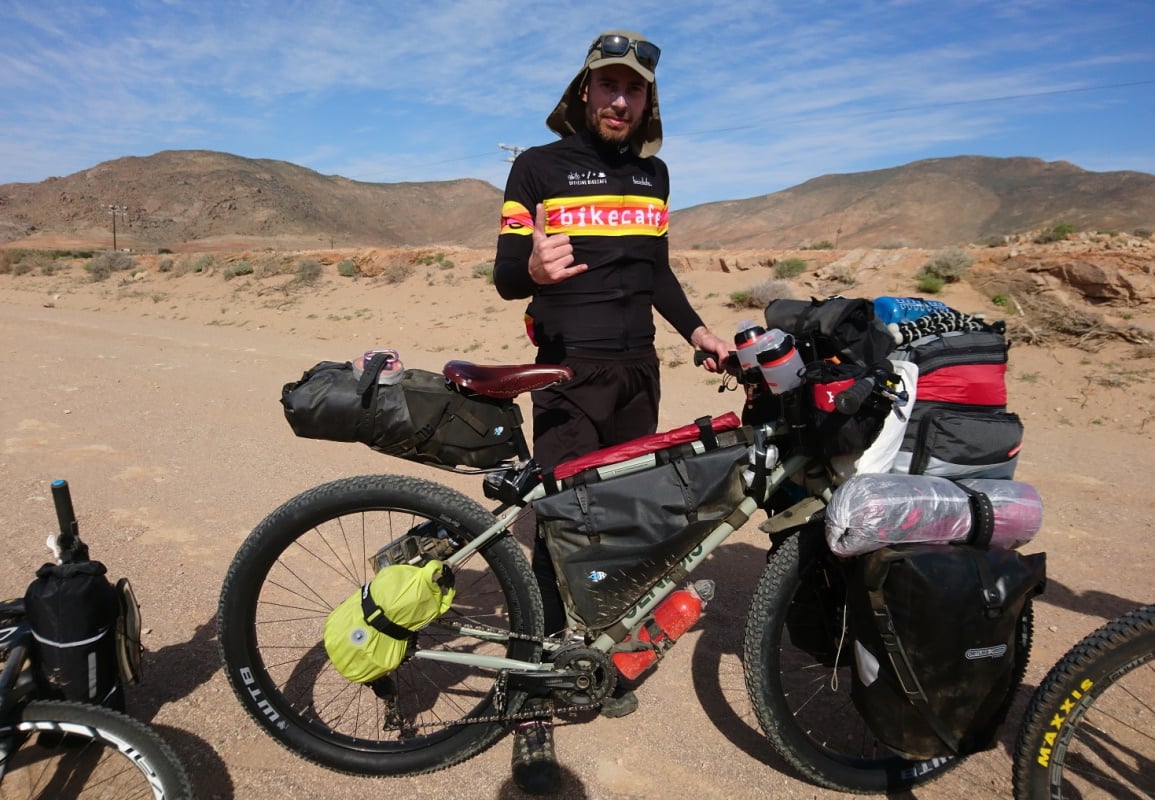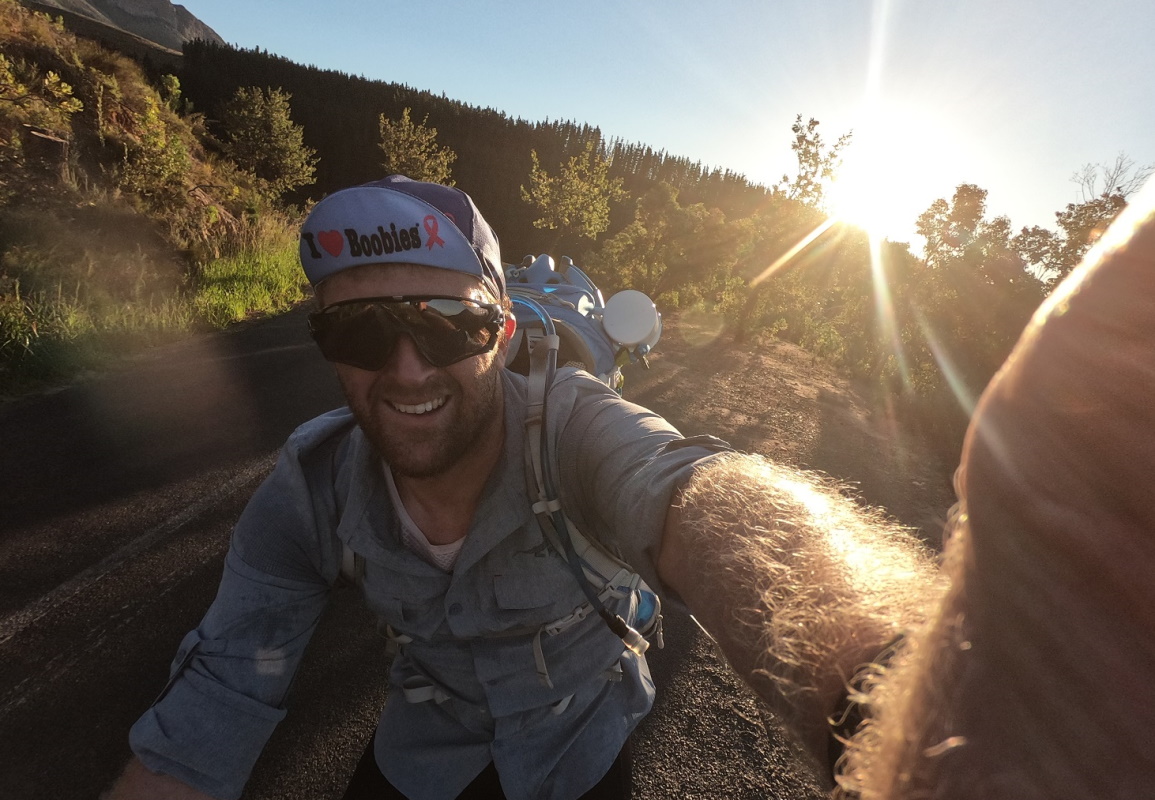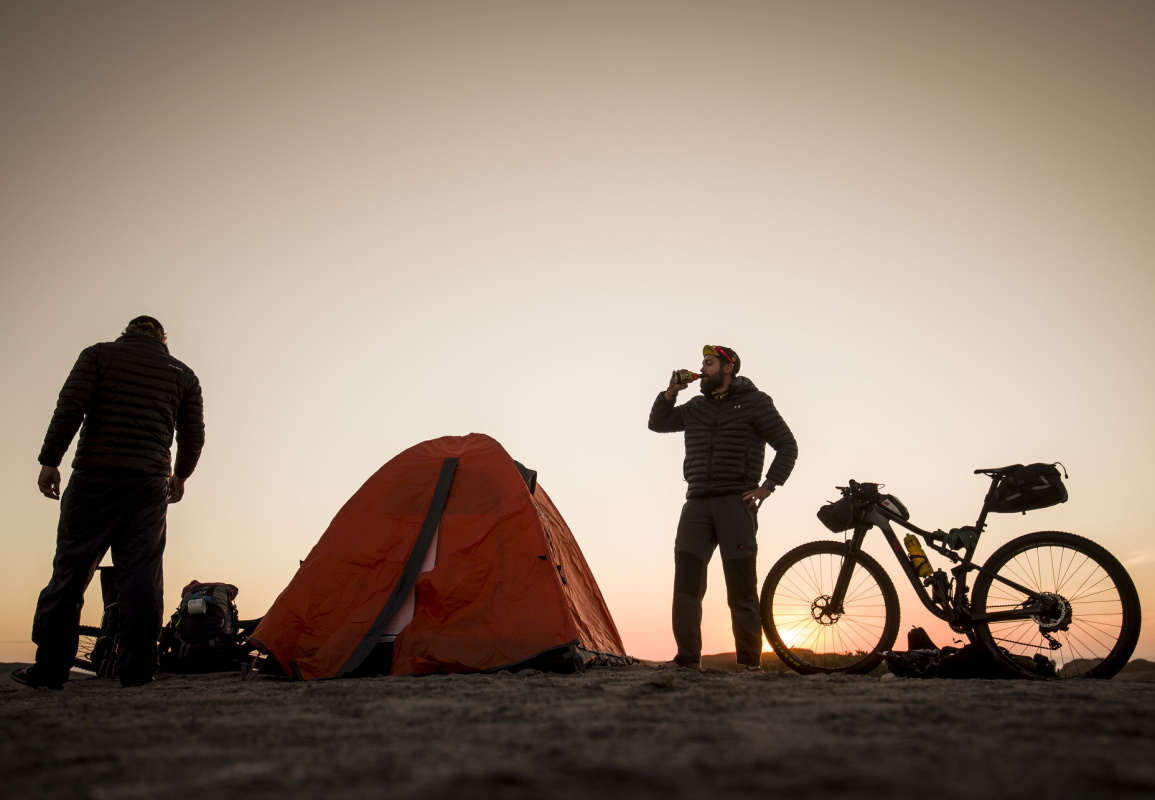Sometimes it’s great to learn the hard way. But mostly it’s better to learn from other people bumping their heads into walls. To stop you making the same mistakes Seamus Allardice did here’s his Top 10 list of things he learnt the hard way bikepacking.
1. Pack Light
This seems so self-explanatory. But it’s a mistake I’ve made repeatedly. I’ve spent 5 days carrying things I never used. Heavy things. Like a camp stove, extra warm tops and even a novel (twice). If you’re unsure of what you need for a long trip do a short, one-night trip, and see what you actually used. Rough it rather than carrying everything, including the kitchen sink with you.
2. Pack Right
If you end up having to wear a backpack make sure you pack all the heavy things on your bike. Frame bags, which fit inside the main triangle of your bike are great for carrying deceptively heavy things like food and cooking utensils. Also, whenever possible carry your water on your bike. A hydration pack, though handy, weighs you down. All that weight you saved buying great First Ascent gear will be a waste if you carry 2kg of water on your back.

3. Pack In The Right Way
Seatpost bags in particular can be tricky to pack well. They’re awkwardly narrow at the attachment point to the seatpost, where you want to put the heavy things. But spread to be able to fit relatively large items. The temptation is thus to put something too heavy beyond the attachment point with the saddle. This creates a weighty pendulum behind your bike. And if your seatpost bag doesn’t have firm structure it can end up dropping down towards your back wheel and even hitting it.
4. Check Your Clearances
Speaking of things hitting your wheel. Always check the clearance between your handlebar and seatpost bags with your tyres. Remember suspension travel, in the case of a mountain bike, will absorb some of that clearance when you get onto your bike, and more when you hit a bump. If you want to use your tent or bags for years you don’t want knobby tyres eating into them. Trust me, even a couple of revolutions can do a significant amount of damage.
5. Increase the Pressure
If you’re an avid mountain biker I won’t have to explain the importance of suspension sag to you. If you’re a mountain biker who knows nothing about sag, but rides a full suspension bike, we have bigger problems. Basically, sag is the amount that your suspension compresses under your weight when stationary. This allows your wheels to hug the trail, by the suspension not only compressing when you hit a bump but expanding when you ride through a dip. Keep in mind that your sag is set for your weight while you’re carrying nothing. When you load your bike with bikepacking bags, it will absorb more of your suspension travel, so you will have to add air pressure to your fork and shock.

6. Check The Weather
A mate of mine, Zane Schmahl, ended up hiding in a culvert during a hail storm. Zane was on a bikepacking trip in Namaqualand in the middle of winter, and upon successfully reaching his accommodation for the night he proceeded to get snowed in. Fortunately, he had a camp stove and could make himself a warming cup of coffee after layering up in the appropriate foul weather gear, which included waterproof long pants. Don’t get caught in the middle of nowhere without the right kit! If you don’t have a support vehicle that sort of mistake can quickly lead to hypothermia. Ideally you want to stop and put on wet weather get before getting drenched to the bone. On a trip in January myself and a few of the group refused to listen to our backup driver’s advice about the weather ahead. Because we only had 15km to ride we chose not to put rain jackets on. Ascending towards the summit of Garcia Pass we were wet through in seconds, and spent a very cold final 45 minutes on the bike. We were so cold in fact that upon arrival in Riversdale Renata Bossi caused the Covid temperature gauge to report: “low” rather than giving a temperature, much to our hostess’s frustration.
7. Pick Your Companions Well
Just because you’re comfortable sleeping on the hard ground for 4 nights, doesn’t mean everyone else is. I’ve made this mistake too many times. I tend to undersell the difficulty of things in order to encourage people to join, knowing that they’ll have a good time when they do. Unfortunately, sometimes they don’t. So, tell them exactly what to expect. And if you think a trip is going to be too tough, find a nice way of telling someone who won’t quite make it that it probably isn’t the trip for them. That said, if you have a support vehicle and are staying in B&Bs then any cyclist should cope. Just throw them in at the deep end…
8. Eat Calorie Dense
I’ve taken tinned food on trips. That was a mistake! And I’ve puzzled over how to keep a piece of meat cold enough to braai at the other end. But honestly that’s just making life unnecessarily hard. A piece of biltong is far easier for the carnivores among us. For the vegies and vegans packing bars or dehydrated meals is the way to go. If you’re riding across Africa then maybe you need to consider exploring the ways of still maintaining a balanced diet. But for a few nights out, just eat small calorie dense meals.

9. Serviceable Bikes
Before setting out on a trip, please ensure your bike is in good working order. I did a 3-day ride with friends, and within the first 8km before we left the tar he’d punctured. His tubeless sealant had long congealed in his tyres and we spent the next four hours riding increasingly short distances, then stopping to pump up his tyre. After having completed 30 of the 100 planned kilometres, for the day, we phoned for help. Not ideal. Rather check these things beforehand.
10. Have Fun
That said, misadventures are ultimately part of the fun. And in the very worst-case scenario we would have just camped on the side of the road for the night. Having diverted from our original destination we could have walked to the main road and waited until a passing good Samaritan picked our intrepid leader and his crippled bike up. (There’s more to the story, we punctured all the spare tubes we had within half an hour too.) Misadventures are what memories are made of!
Keen to plan your own bikepacking adventure?
Check out some of Seamus Allardice's favourite things to take with here.
